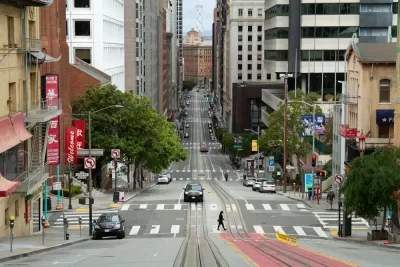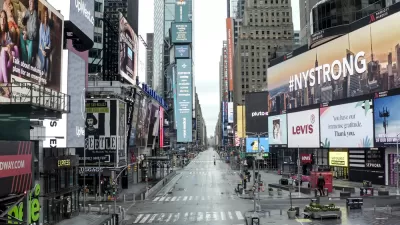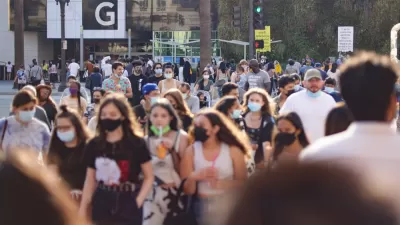An argument for the long-term cultural and economic viability of the city, even after the pandemic.

Highly productive workers and industries will continue to cluster in cities, and remote work can only go so far in reshaping the global economy, according to one leading economics researcher.
Jerusalem Demsas writes in the article and interview linked below on one of the most common questions of the pandemic: Will workers return to the city, or will huge number of former office workers and urban dwellers decamp for good to the suburbs, where they'll work from home for the rest of their careers?
"Much ink has been spilled on how Covid-19 will impact the urban geography of the United States," writes Demsas to introduce the context of the argument to come. "Early in the pandemic, some were even forecasting the death of the nation’s superstar cities as some urban dwellers fled for the suburbs."
There were plenty of signs for naysayers of urbanity to point to in predicting the death of cities as a result of the pandemic. "As the year went on, demand for suburban homes fueled questions about whether these moves would be permanent," and "A June National Bureau of Economic Research paper by researchers from the University of Chicago estimated that 37 percent of jobs can be performed entirely remotely."
There are still, however, reasons to believe in the ongoing centrality of large cities in the economy and culture of the United States. To present that case, Demsas interviews with Enricco Moretti, economic professor at the University of California, Berkeley, who authored the 2013 book The New Geography of Jobs.
"In this interview, Moretti explains why high-productivity workers cluster in a handful of cities and why the strength of those forces means it’s unlikely that very many of us will be working fully remotely in the long run. We also discuss why such a small slice of the American labor force can determine so much about which cities dominate," writes Demsas.
FULL STORY: Remote work is overrated. America’s supercities are coming back.

Maui's Vacation Rental Debate Turns Ugly
Verbal attacks, misinformation campaigns and fistfights plague a high-stakes debate to convert thousands of vacation rentals into long-term housing.

Planetizen Federal Action Tracker
A weekly monitor of how Trump’s orders and actions are impacting planners and planning in America.

In Urban Planning, AI Prompting Could be the New Design Thinking
Creativity has long been key to great urban design. What if we see AI as our new creative partner?

San Francisco Mayor Backtracks on Homelessness Goal
Mayor Dan Lurie ran on a promise to build 1,500 additional shelter beds in the city, complete with supportive services. Now, his office says they are “shifting strategy” to focus on prevention and mental health treatment.

How Trump's HUD Budget Proposal Would Harm Homelessness Response
Experts say the change to the HUD budget would make it more difficult to identify people who are homeless and connect them with services, and to prevent homelessness.

The Vast Potential of the Right-of-Way
One writer argues that the space between two building faces is the most important element of the built environment.
Urban Design for Planners 1: Software Tools
This six-course series explores essential urban design concepts using open source software and equips planners with the tools they need to participate fully in the urban design process.
Planning for Universal Design
Learn the tools for implementing Universal Design in planning regulations.
Gallatin County Department of Planning & Community Development
Heyer Gruel & Associates PA
JM Goldson LLC
Mpact (founded as Rail~Volution)
City of Camden Redevelopment Agency
City of Astoria
Jefferson Parish Government
Camden Redevelopment Agency
City of Claremont




























